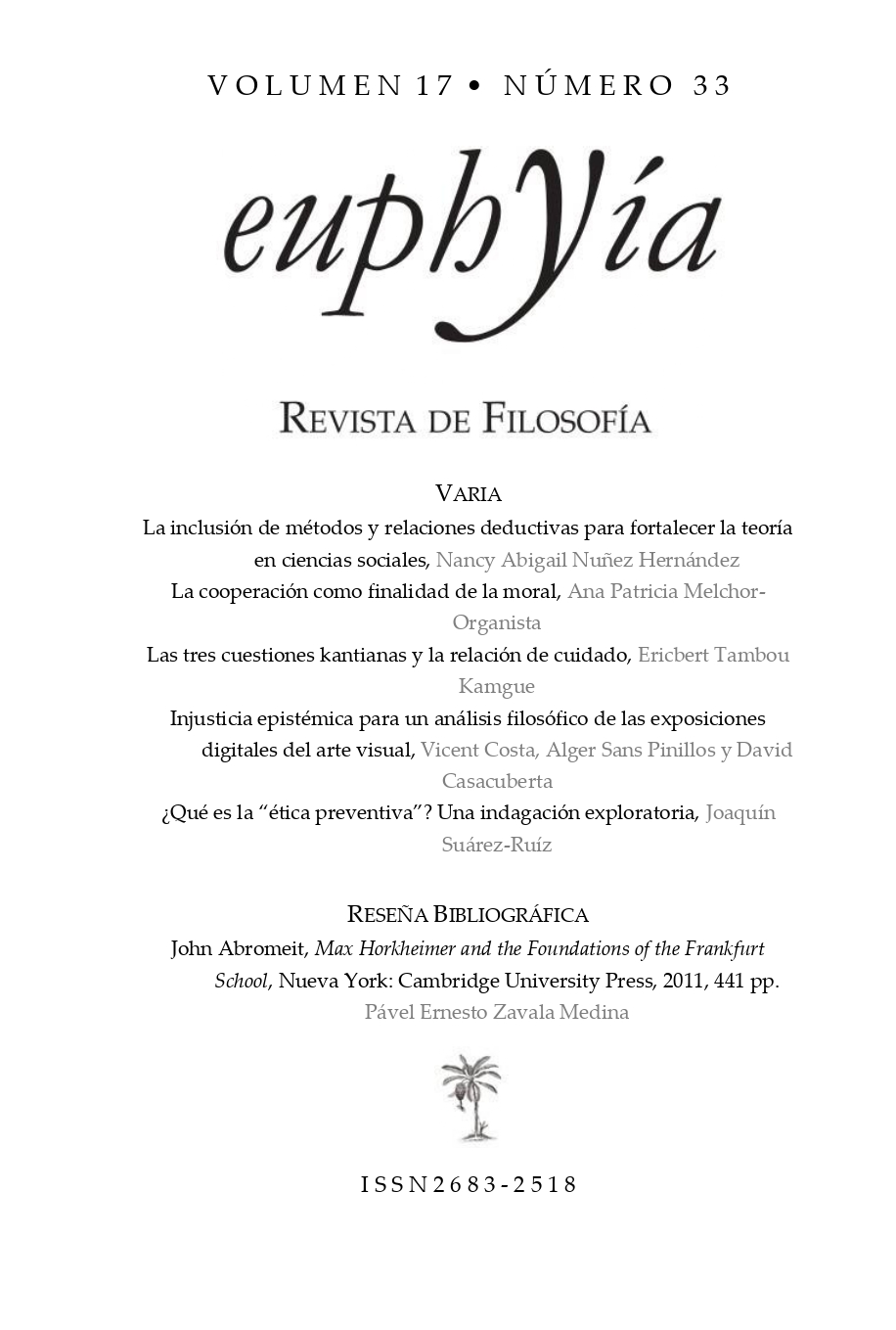What is “preventive ethics”? An exploratory inquiry
DOI:
https://doi.org/10.33064/33euph6521Abstract
The general purpose of a “preventive ethics” is to determine measures and strategies conducive to avoiding the arrival of conflicts or problems of a moral order, that is, it aims to intervene in a certain context before the latter occur. Although the preventive approach, like traditional “applied ethics”, involves a strategic and calculated analysis of hypothetical moral problems, it does not proceed in a manner analogous to deduction, “applying” normative philosophical criteria. Rather, when focusing on the anticipation of specific situations, it is necessary to incorporate, as relevant variables to be considered, the possible influence of certain psychological conditioning of moral agents located in a specific context (cognitive biases, for example). It is a type of ethical methodology that, strikingly, has practically not been theorized or systematized in academic ethics but which, nevertheless, is widely used in applied sciences. This article will analyze its general characteristics, its differences from “applied ethics” and its possible link with contemporary moral psychology.
Downloads
Metrics
Downloads
Published
How to Cite
Issue
Section
License

This work is licensed under a Creative Commons Attribution-NonCommercial-NoDerivatives 4.0 International License.

Este obra está bajo una licencia de Creative Commons Reconocimiento-NoComercial-SinObraDerivada 4.0 Internacional.










